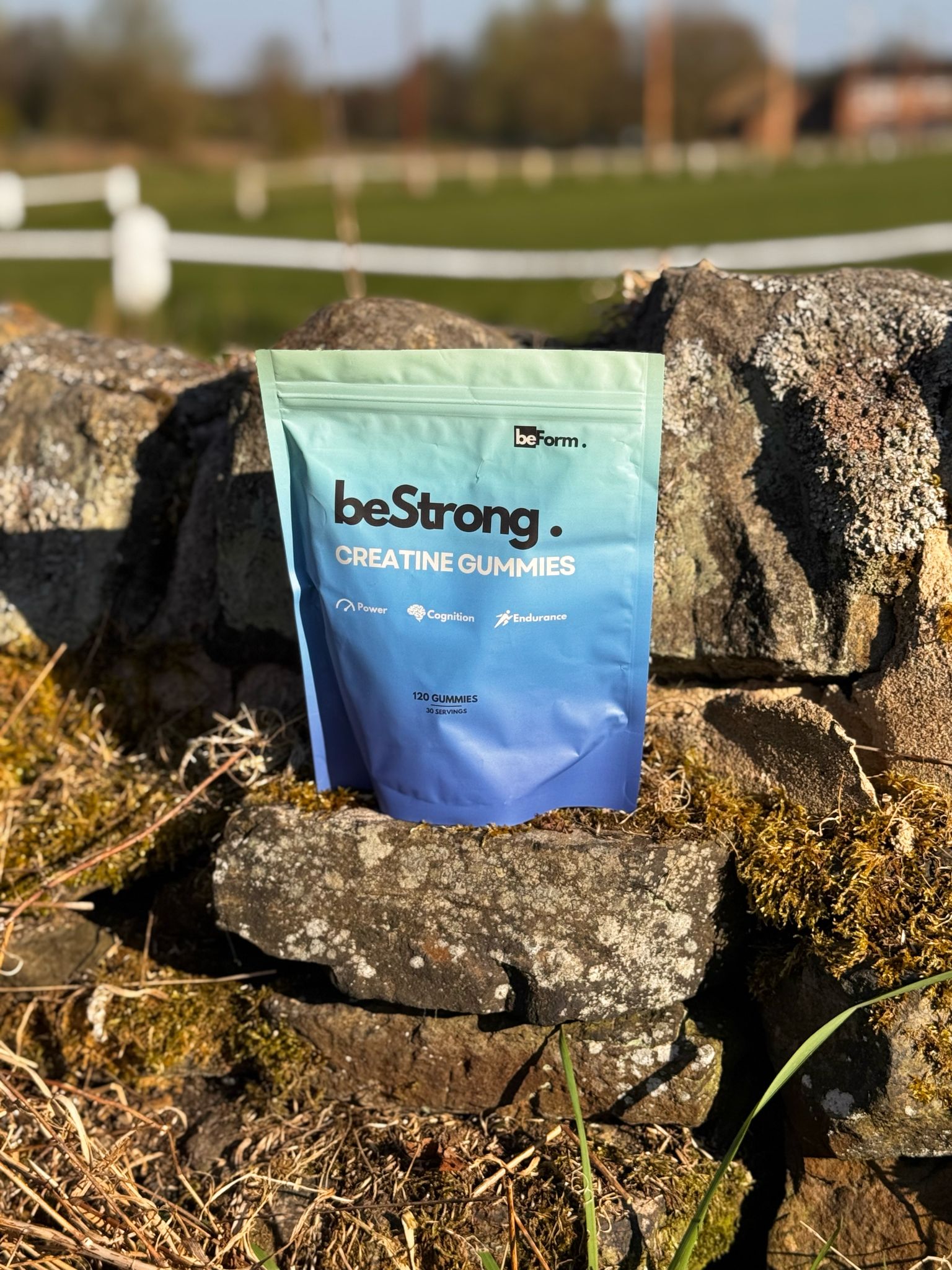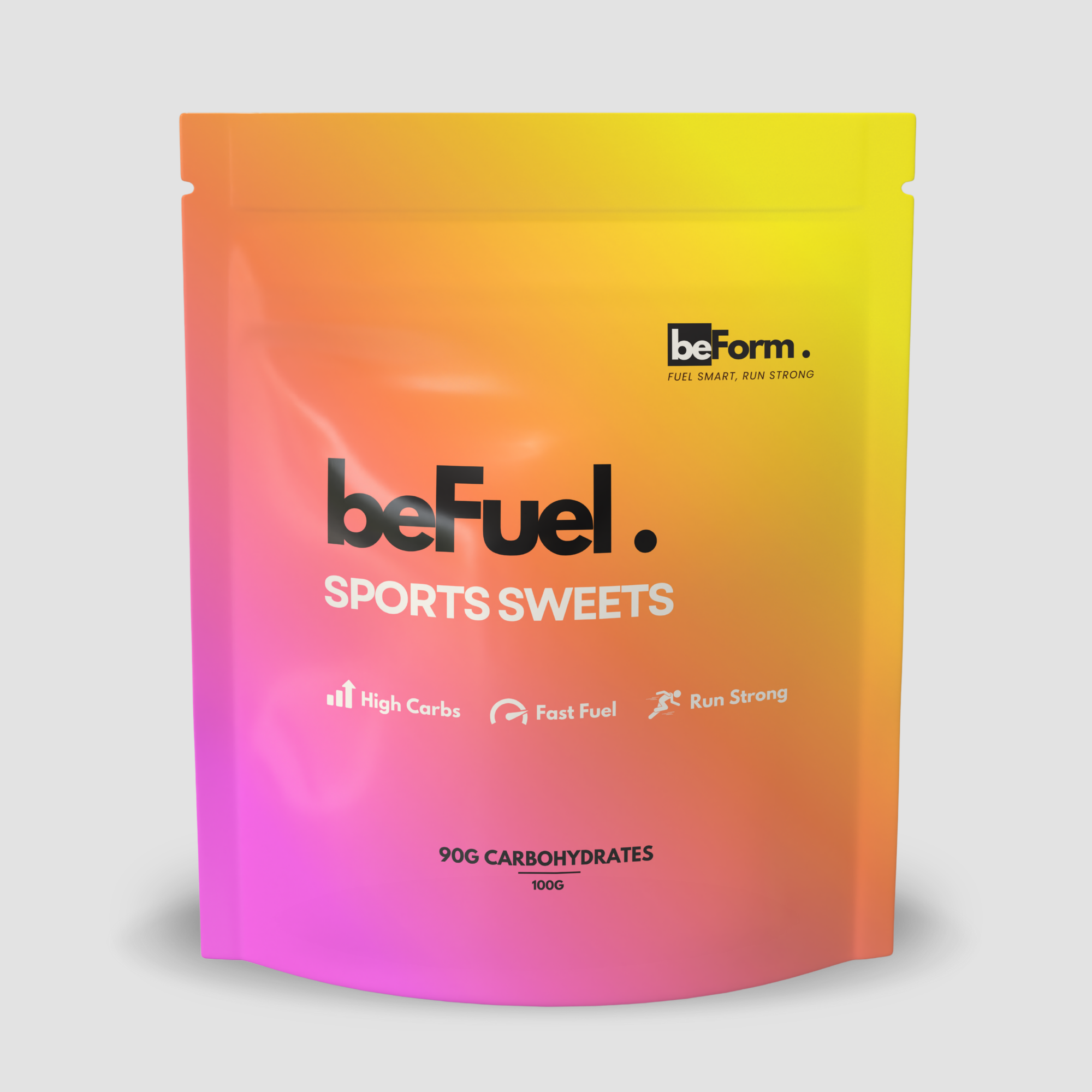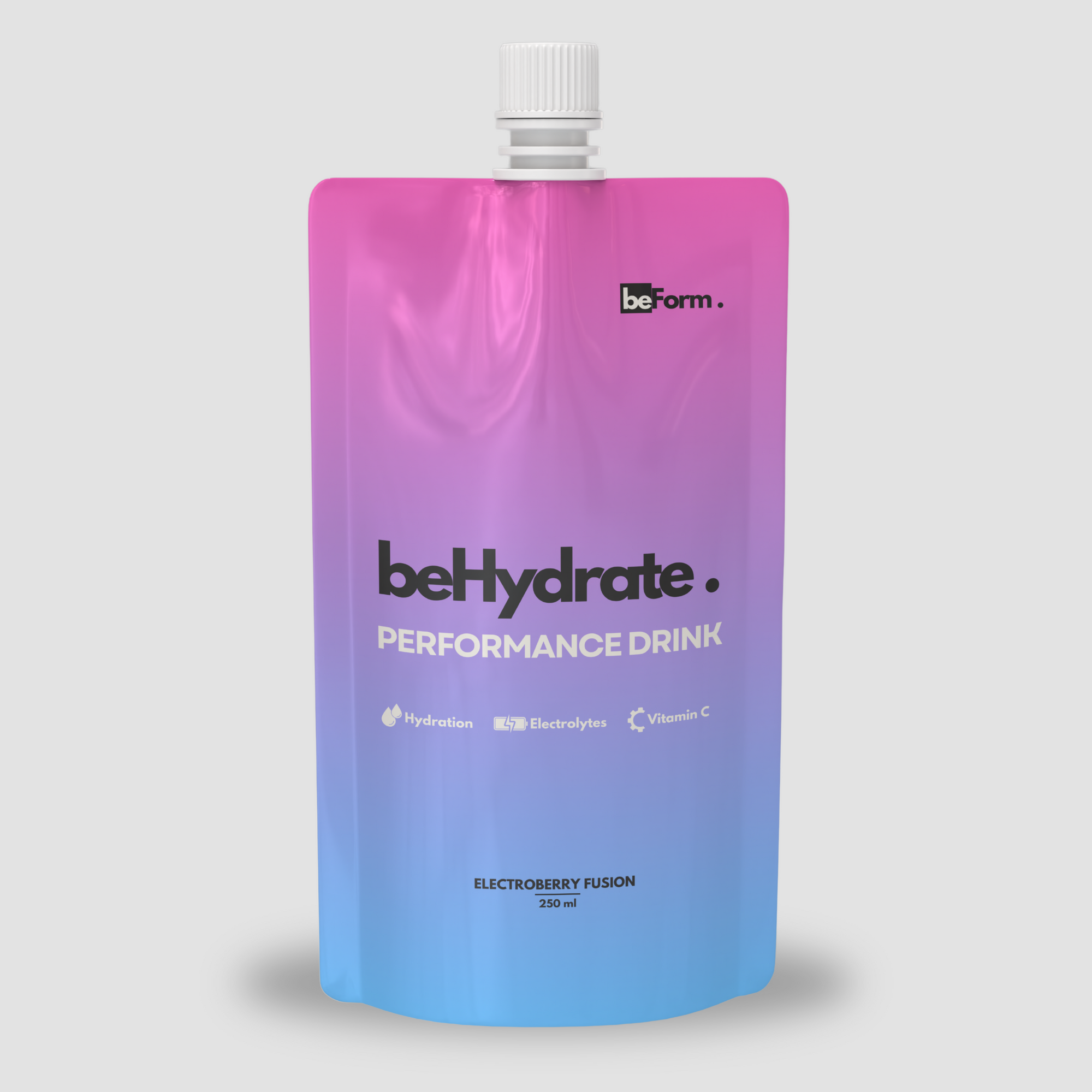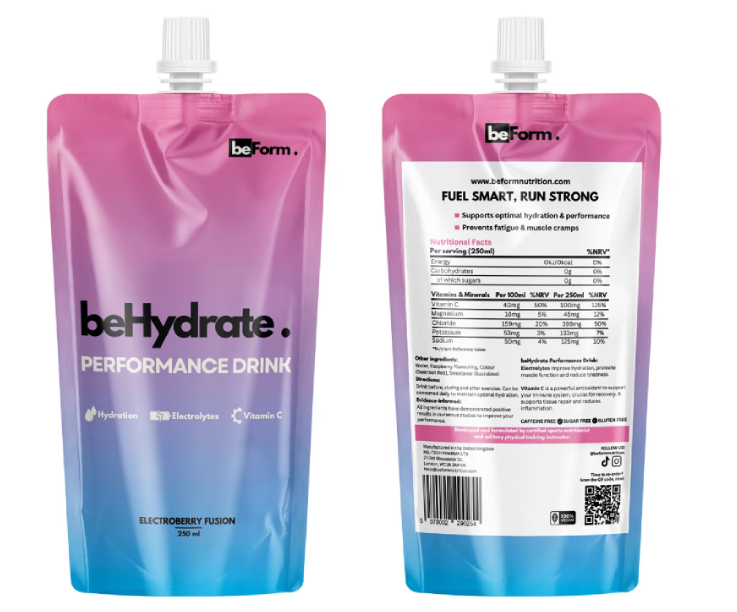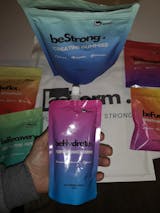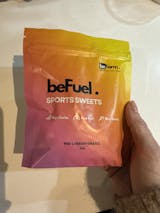Creatine, often associated with bodybuilders, offers benefits that can significantly enhance endurance performance, accelerate recovery time and boost cognitive functions.
It is these reasons and more that we have developed our creatine gummies.
This guide will explore its science to help you decide if creatine is a suitable option for you.
Here's what we will cover:
-
Understanding Creatine: What it is, how it works, and where it comes from.
-
Endurance Benefits: How creatine can improve your power, recovery, and mental game.
-
Addressing Concerns: Weight gain, dehydration, and other common worries.
-
Choosing the Right Type: Navigating the world of creatine monohydrate, HCL, and more.
-
Dosage and Timing: Maximising creatine's effects for endurance performance.
-
Real-World Insights: What the Reddit community is saying about creatine and endurance.
-
Expert Recommendations: Integrating creatine into your training plan safely and effectively.
-
Safety and Side Effects: Understanding potential risks and how to minimise them.
Ready to realise your endurance potential? Let's dive in!
1. Understanding Creatine: The Basics
I think it is important to understand what creatine is. Many people have heard of creatine, and some people may think it is like a steroid (it's not), but most probably will not know the mechanism of action or how it works.
What is Creatine?
Creatine is an amino acid derivative and naturally occurs in small amounts in food sources like red meat and seafood, although your body also makes its version in your liver, kidneys, and pancreas.
Think of creatine as an energy reserve for your muscles. It plays an integral part of the ATP-PCr system - used as a primary source during short bursts of high-intensity activity.
How Creatine Works: The Science
To truly comprehend how creatine benefits endurance athletes, we must delve into its scientific principles related to energy production.
Adenosine triphosphate (ATP) is the primary energy currency for your cells. When engaging in vigorous physical exercise, however, ATP levels quickly deplete.
As an emergency backup mechanism, the phosphocreatine (PCr) system quickly replenishes it by donating phosphate molecules back into ATP's chemical form.
By supplementing with creatine, you increase muscle storage of PCr and therefore have access to more energy during sprints, hill climbs and surges during races.
Creatine draws water into muscle cells, leading to greater hydration and cell volumisation and helping improve muscle function while decreasing fatigue levels.
This may ultimately contribute to improved performance and reduced fatigue levels.
Hydration is essential to helping your body recover quickly after engaging in rigorous physical activity.
2. Benefits of Creatine Supplementation for Endurance Athletes
Creatine may be best known for enhancing strength and power in weightlifting, but its advantages extend far beyond this arena. Creatine could even benefit endurance athletes like you.
Enhanced Performance
Creatine can help increase power during sprints, bursts of speed, and those last final pushes to the finish line.
By increasing your ability to buffer lactic acid levels and sustain higher intensities for longer, creatine may enable you to shave seconds off 5k times or power through every mile in marathons.
Thus giving you that extra edge during high-intensity intervals while helping you recover quicker after pushing harder!
Accelerated Recovery
Research suggests that creatine may reduce muscle damage and inflammation after intense exercise, speeding recovery times.
Some studies also indicate it could enhance glycogen storage to refuel your muscles more efficiently following an intense workout or race. Plus, creatine helps minimise delayed-onset muscle soreness (DOMS), so you'll be back out there sooner!
Cognitive Benefits
Studies suggest that creatine could enhance cognitive performance during times of stress and fatigue, making a huge difference during endurance events where mental clarity is as crucial as physical strength.
Furthermore, some studies indicate it may even have neuroprotective properties to protect against brain damage and cognitive decline.
Additional Benefits
Recent research indicates that creatine may help improve bone health and reduce fracture risk, as well as boost glucose regulation for more sustained energy during endurance activities.
Creatine and Endurance: Addressing Common Concerns
Many endurance athletes avoid creatine due to misinformation surrounding its use, so let's address some of their most frequently voiced concerns:
Weight Gain: Is it a Problem for Endurance?
Creatine does cause water retention, leading to an increase in body weight for a limited period of time.
However, most of this extra water weight lies within muscle cells rather than subcutaneous fat stores - for endurance athletes, this extra fluid could prove useful as muscle recovery efforts increase with training volume and intensity.
Staying properly hydrated while limiting sodium consumption will help minimise any negative side effects caused by creatine water retention.
Dehydration and Cramping: Separating Fact from Fiction
Scientific evidence does not support claims that creatine causes dehydration or cramping; by increasing water retention within muscle cells, creatine may improve hydration.
Proper hydration remains key for endurance performance regardless of any medications taken, such as creatine.
Gastrointestinal Issues: How to Avoid Them
Individuals may experience gastrointestinal distress after taking creatine monohydrate.
To alleviate any issues with taking too much creatine at once, starting slowly and increasing gradually may help.
Also, be wary of taking too much creatine at once. Start out at a lower dosage to see how your body responds before increasing over time.
4. Types of Creatine Supplements and Selecting an Appropriate One for You
Supplement stores offer many forms of creatine, making the choice more complicated than ever. Here is a breakdown of some of the more common varieties to help make your decision simpler:
Creatine Monohydrate: The Gold Standard
Creatine monohydrate is the most researched and widely utilised form of creatine. It's effective, affordable, and readily available; however, some individuals may experience gastrointestinal discomfort with it.
Micronised creatine monohydrate may provide better absorption rates with smaller particles that improve absorption rates while decreasing discomfort in the GI tract.
CEE (Creatine Ethyl Ester)
CEE was originally promoted as an easily absorbable form of creatine, but research has demonstrated its lower effectiveness compared to creatine monohydrate and generally isn't recommended.
Creatine Hydrochloride (HCL)
Creatine HCL is more water-soluble than creatine monohydrate, potentially improving absorption and minimising digestive side effects; however, it tends to be more costly.
Buffered Creatine (Kre-Alkalyn)
Kre-Alkalyn is a buffered form of creatine that claims to be more stomach-friendly and requires lower dosages; however, research does not support these claims.
Other Forms of Creatine
Creatine Nitrate and Magnesium Chelate are still under research and their efficacy has yet to be proven; thus, for most athletes, creatine monohydrate remains the safest and most reliable form.
5. Dosage and Timing to Optimise Creatine Effects
In order to maximise the effects of creatine supplementation, proper dosage and timing guidelines must be observed:
Loading Phase vs. Gradual Saturation Phase
Creatine supplements come in two basic forms. Here are your two options for doing just that:
Loading Phase: For quick results, this phase involves taking higher doses (20 grams daily for 5-7 days) of creatine to rapidly saturate muscles with creatine.
Gradual Saturation Phase: Here, you take lower amounts (3-5 grams daily over a longer period).
Here's a more thorough breakdown:
Loading Phase: For best results, start out by taking 20 grams of creatine monohydrate each day for seven to ten days, divided up into 4-5 doses throughout the day.
Gradual Saturation: Over time, you should gradually increase to taking 3-5 grams daily of creatine monohydrate; this may take longer, but be gentler on your stomach.
Maintenance Phase: After the loading phase (if any), continue taking 3-5 grams daily to maintain your creatine levels.
Timing: When to Take Creatine
Creatine supplementation should be taken on a consistent daily basis; studies suggest taking it post-workout may be slightly more effective, though any time is fine.
Consuming creatine with carbohydrates and proteins may increase absorption and utilisation - consider adding it to your post-workout shake!
6. Real-World Insights from Reddit Community Members
Let's explore what endurance athletes are saying about creatine on Reddit to gain some real-world perspectives and experience.
Though some users find creatine an indispensable supplement, others experience adverse side effects.
One user shared his negative experience with magnesium glycinate supplementation, causing increased heart rate and anxiety; thus, highlighting the need to start slow and carefully observe your body's reaction when taking any new supplement.
Here are a few specific anecdotes from Reddit users:
-
One user noted, "Creatine has helped me push harder during interval training and maintain my speed for longer."
-
Another individual commented on their concerns with water weight gain, but later realised it helped keep them hydrated during long runs.
-
One user suggested starting slowly. "Start with a low dose! At first, I took too much and experienced stomach issues; now 3 grams daily works fine for me."
Key Takeaway: It is crucial to remember that each body responds differently.
One Reddit user said it best: results must always come first over what anyone says; thus stressing the importance of individual experimentation and monitoring your response to creatine supplementation.
Note: While these stories can be entertaining, always consult a healthcare provider before using supplements for any medical condition.
7. Expert Recommendations: Integrating Creatine into Your Training Plan
Before taking creatine supplements, it's essential to speak to a sports nutritionist or healthcare provider to make sure it's suitable and safe for your specific situation. In particular, if any preexisting health conditions exist.
Creatine may be taken in conjunction with other supplements, like beta-alanine and caffeine, in order to enhance performance.
When considering combination supplements such as this one, it is wise to conduct extensive research, as potential interactions should always be researched first and checked with medical professionals before beginning use.
Here are a few creatine supplementation plans tailored specifically to endurance athletes:
Plan 1: General Endurance Training for Runners, Cyclists, and Swimmers
-
Loading Phase (Optional): 20 grams of creatine monohydrate per day for 5-7 days, divided into 4 doses.
-
Maintenance Phase: 3-5 grams per day.
-
Timing: Take creatine after workouts or at any convenient time during the day.
Plan 2: Prioritise Recovery (Marathon Runner and Ultra-Endurance Athletes)
-
Loading Phase: Supplement with 3 grams of creatine monohydrate per day during this phase.
-
Maintenance Phase: Continue taking 3 grams per day.
-
Timing: Take creatine post-workout, focusing on replenishing muscle stores.
Plan 3: High Intensity Focus (Track Cyclists and Sprinters)
-
Loading Phase: For five days, take 20 grams of creatine monohydrate divided into four doses for a five-day loading phase supplementation.
-
Maintenance Phase: 5 5-gram per day of maintenance dose is prescribed and taken 30-60 minutes before high-intensity workouts or races.
-
Timing: Take creatine 30-60 minutes before high-intensity workouts or races.
Cycling: Cycling creatine isn't necessary, but some athletes prefer taking breaks every few months from taking creatine. This decision is solely personal; no scientific evidence supports its implementation.
8. Safety and Side Effects: What You Need to Know
Creatine should generally be safe when taken as prescribed; however, it's important to be aware of possible side effects:
Gastrointestinal Discomfort: Some individuals may experience nausea, diarrhoea or stomach cramps when taking creatine supplements. If this occurs to you, try switching forms or decreasing dosage accordingly.
Muscle Cramps: Muscle cramps may occur occasionally and require proper hydration and electrolyte consumption in order to avoid them. Drinking enough fluids and electrolytes may help alleviate their discomfort.
Dehydration: Although creatine won't directly lead to dehydration, users must remain properly hydrated when taking it as it draws water into muscles.
Creatine and Kidney Health: People with preexisting kidney conditions should seek advice from healthcare professionals before taking creatine, even though research shows it to be safe for healthy individuals. Caution should always be exercised when supplementing with creatine.
9. Dietary Sources of Creatine
Although supplements are the best way to increase creatine levels, diet can also play a key role.
Red meat (especially beef) and fish such as salmon and tuna contain significant amounts of creatine
However, cooking may reduce their creatine content significantly, so achieving significant amounts through diet alone would require eating large quantities, thus making supplementation more practical for most athletes.
Conclusion: Creatine Is An Essential Resource for Endurance Athletes
Creatine is an impressive supplement with proven benefits for endurance athletes.
From improving performance and speeding recovery time to potentially improving cognitive function, creatine can help endurance athletes realise their full potential and reach their peak performance levels.
Be sure to seek advice from a healthcare professional prior to beginning creatine supplementation, and adhere to recommended dosage and timing guidelines.
When used correctly, creatine can become an invaluable addition to both your training and nutrition plans - so get out there, put in your hard work, and achieve your goals!
Please share any insight or advice on our Facebook page so we can all work together and enjoy running to its fullest.



